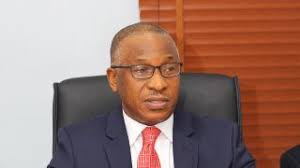The Director General of the Bureau of Public Enterprises (BPE), Mr. Alex Okoh, has said that the next phase of the Reform and Privatisation Programme of the Federal Government will focus on Public Private Partnerships (PPPs) in order to correct the rising infrastructure deficit in the country.
Okoh made the remarks when he received a delegation from the World Bank, led by the senior Economist (Economics and Private Sector Development), Mr. Volker Treichel, in the Bureau’s headquarters in Abuja.
A statement on the visit issued by the agency’s Head, Public Communications, Amina Tukur Othman, quoted the BPE Director General as saying that the country’s infrastructure gap is huge requiring an estimated investment of over $3 trillion in the next 30 years, translating to an average of $100 billion per annum for the next 6 years to bridge the gap;.
Represented by the Director, Infrastructure and Public Private Partnership Department, Mallam Sanusi Sule, who received the World Bank team , Okoh explained that the new phase targeted reforms mostly in the utility and infrastructure sectors which include; water resources, railways, airports and highways.
According to him, the need for refocusing on PPP is borne out of the increasing budgetary constraints to fund the development of new infrastructure and effectively maintain existing ones; deteriorating infrastructure (dilapidated roads, schools, hospitals etc); higher public expectations in terms of efficiency and effectiveness of infrastructure service delivery.
The privatization expert lamented that the country’s infrastructure stock was too low for any meaningful development and that “the public sector cannot afford to provide the resources required to bridge the huge infrastructural gap”.
Okoh maintained that in view of the public funding gap, the most feasible option was to attract private sector investments.
He hinted further that the Bureau was working with key stakeholders to come up with a robust framework and process for implementing and managing PPPs in the country.
In his remarks, the leader of the World Bank’s delegation said that the visit was part of the bank’s private sector diagnostic assessment of the public sector in Nigeria.
He promised that the bank would continue to explore areas of providing short term assistance to the Bureau over the next three years.






